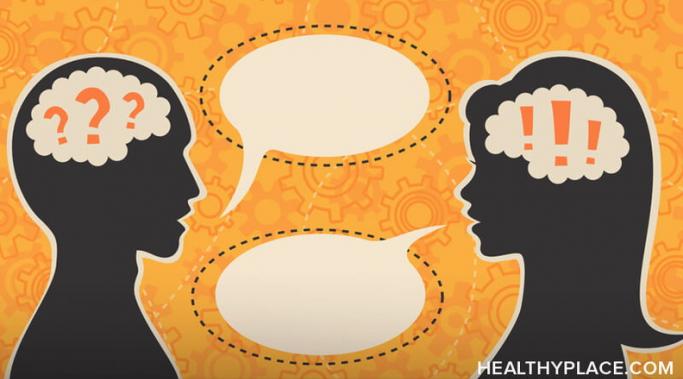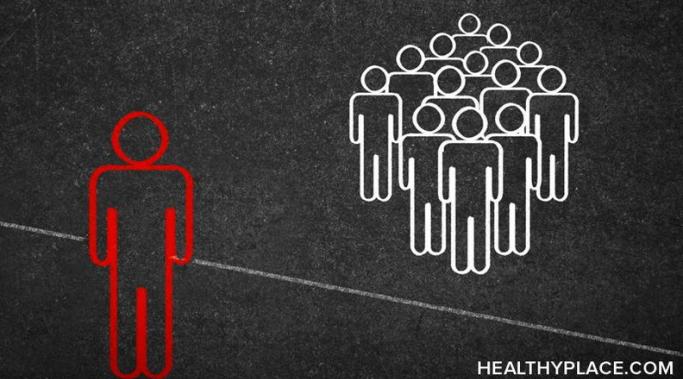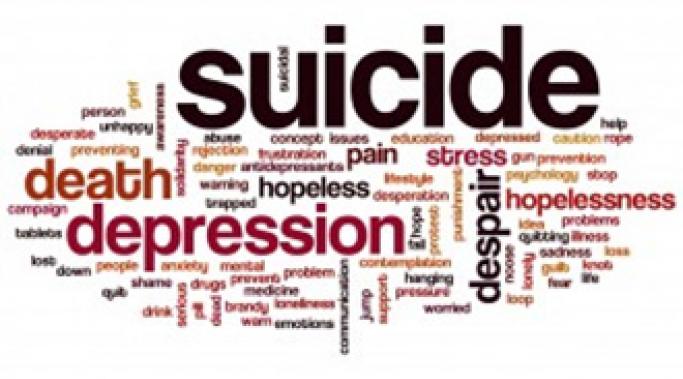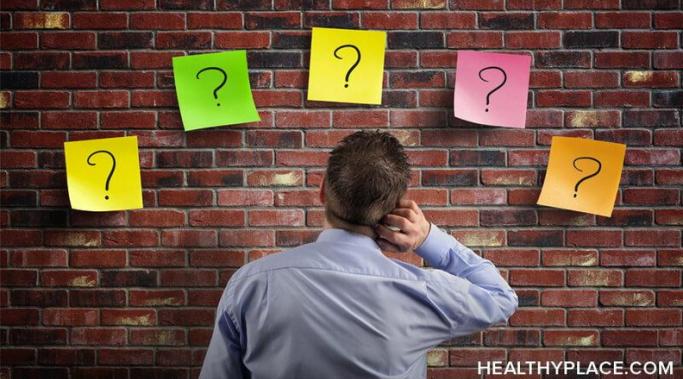Sometimes, mental illness stigma comes from a loved one's concern for us but mental illness stigma that comes from concern still hurts. For example, I don’t talk about the period of time in my life when I was suicidal. On the rare occasion I might, it will be a fleeting comment or a quick attempt to brush it off as if it were nothing. Even in the articles I’ve written about it, it’s more to talk about how it worked (the way the idea was stuck on repeat in my head; the way it drowned out all other options) rather than the way it actually impacted me. I wish my loved ones didn't react out of concern for me. When they do, I feel as if I must explain myself instead of just talking out the problem. Their concern shows mental illness stigma.
How to Combat Stigma
It's hard to overcome stigma and judgement but you can overcome the stigma of mental illness with peer and family support. Just about everyone who suffers from a mental illness has experienced some form of mental health stigma. Stigma can take many forms, but for the sake of this blog post, I want to focus on the type of stigma that causes others to judge people with a mental illness and lower the status of mentally ill people in social situations.
When others judge you, it affects whether they will choose to befriend you, whether they will give you the respect you are due as a human being, and it affects many different social advantages that people without mental illnesses take for granted. But you can overcome the stigma of judgement of mental illness with support.
There’s a video that came out just over a month ago that tells me to stop saying I'm depressed. It was made and posted by Prince Ea (Discussing Depression and Mental Health: Why Language Matters). Despite his enormous Facebook following, I had never heard of him before this video, but from what I can tell, he is a motivational speaker. His large following and the viral traction the video gained are the reason I want to write about it. You see, Prince Ea's message is fundamentally flawed. It tells me to stop saying I'm depressed.
The stigma of talking about mental illness shows itself in mental health conversations and proves again and again to be a double-edged sword. On the one side, there is the potential to help many people who are otherwise left in the dark and suffering in silence. Talking about mental illness can also bring awareness to people who had stigma-driven ideas of what mental health is and change their minds. Essentially, talking about mental illnesses can slice through the negative and bring about positive change (Stop Minimizing Mental Illness: Worst Things to Say). That same sword is also often used to parry against the truth of mental illness. Some people just don’t get it (and don't want to get it). They keep the ignorance of mental illness alive by talking about mental illnesses incorrectly. There can be stigma in talking about mental illness.
Excoriation disorder is more than just a habit and words around it can stigmatize. Body-focused repetitive behaviors like excoriation (also called dermatillomania and skin-picking disorder) are more than bad habits one can break. The disease is difficult enough to deal with without the misunderstandings and stigma. Very few people know about this group of obsessive-compulsive related disorders (OCD) despite increased awareness efforts from within the body-focused repetitive behaviors (BFRB) community and even outside sources. It's important to remember that words can be stigmatizing and that excoriation is more than just a habit.
When it comes to gun violence, mental illness is most of the time an assumed precursor for that violence -- this stigma teaches fear. When mass shootings take place, especially in the U.S., the assailant typically is found to have been suffering from posttraumatic stress disorder, depression, schizophrenia, bipolar disorder – pretty much the staple mental illnesses that popular media knows. When that diagnosis isn’t present, the dig for it begins. News media heavily stigmatizes mental illnesses in this way which lead to fear and the assumption that all mental illnesses will lead to gun violence.
Handling a job with a mental illness can lead to stigma. To say that mental illness can make a job more challenging would be an understatement. Not only are there the challenges of actually completing a day’s (or night’s) work, of deciding how open to be about your mental illness with your boss or supervisor, and trying to figure out how many sick days are acceptable before you’ll get fired, but there are also a number of work-related challenges outside of the workplace. There is mental illness stigma around handling a job.
There is a stigma around suicide that says suicide is selfish. Despite all the conversations everyone has started about mental illness, despite any awareness campaigns and openness from people who have struggled, suicide is still a touchy subject (#SU4MH). It’s avoided and it’s looked down upon. Most commonly, suicide is called selfish. How can someone kill themselves and not think about the people left behind? How can someone only think of their own pain? But the idea that suicide is selfish is a product of stigma.
I wish to address the good and bad of mental health self-diagnosis after my last blog post Destigmatizing Self-Diagnosis of Mental Illnesses due to the response I’ve gotten. I knew from the moment I thought of writing that blog I would be faced with a large amount of disagreement, and although I didn’t receive as much as I had expected, it was still present. So here is, more or less, a response to everyone who commented and probably even some of those who didn’t on the good and bad of mental health self-diagnosis.
One thing that has a bad reputation, even within the mental health community, is self-diagnosis but I think that self-diagnosis of mental illness should be destigmatized. I have seen posts that suggest people who self-diagnose are just attention-seekers who give a bad name to mental health and those who suffer with mental illnesses. Especially in the day and age when Googling symptoms can sometimes lead to really extravagant diagnoses, it seems perhaps better to just avoid self-diagnosis at all but destigmatizing self-diagnosis of mental illness may be a good thing.









